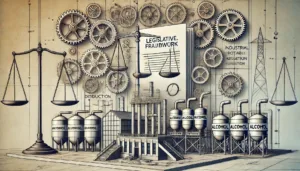Case Citation
Court Name: Supreme Court of India
Case Title: Dr. Balram Singh v. Union of India & Ors.
Case No.: Writ Petition (Civil) No. 324 of 2020
Date of Judgment: October 20, 2023
Judges: Justice S. Ravindra Bhat and Justice Aravind Kumar
Facts of the Case
The petitioner, Dr. Balram Singh, filed a writ petition under Article 32 of the Constitution of India, seeking directions to ensure the effective implementation of the Prohibition of Employment as Manual Scavengers and Their Rehabilitation Act, 2013, and the Employment of Manual Scavengers and Construction of Dry Latrines (Prohibition) Act, 1993. The petitioner argued that, despite these laws, manual scavenging continued in several parts of India, causing severe social and economic discrimination. The petition also highlighted the failure of state governments and the central government in enforcing these laws, leading to continued deaths of sewer workers. The petitioner requested strict enforcement of the laws, rehabilitation of affected individuals, and compensation for sewer deaths.
Contentions of the Appellant (Petitioner)
- The respondents (Union of India and States) have failed to fully implement the 2013 Act, allowing manual scavenging to persist despite its legal prohibition.
- The rehabilitation provisions under the 2013 Act have not been properly enforced, depriving manual scavengers of their rights to financial assistance, employment, and educational benefits.
- The National Commission for Safai Karamcharis (NCSK) and other institutions meant to oversee implementation of the Act have not been properly constituted or function effectively.
- The government has failed to conduct a proper national survey to identify all manual scavengers and ensure their rehabilitation.
- The compensation for sewer deaths should be enhanced, and those responsible for employing manual scavengers in hazardous conditions should be held criminally liable.
Contentions of the Respondents (Union of India & State Governments)
- The 2013 Act does not mandate a national survey, and local bodies are responsible for identifying manual scavengers.
- Surveys were conducted in 2013 and 2018, and data was collected on identified manual scavengers, who were provided rehabilitation benefits.
- A mobile app-based survey (Swachhata Abhiyaan) was introduced to allow the general public to report manual scavenging, but the data has not been substantial.
- The compensation for sewer deaths has been disbursed in most cases, and mechanized cleaning is being promoted to eliminate hazardous cleaning.
- The NAMASTE (National Action for Mechanized Sanitation Ecosystem) scheme has been introduced to mechanize sewer cleaning and eliminate manual intervention.
- The Railways and Cantonment Boards have taken steps to eliminate manual scavenging and replace old systems with mechanized cleaning.
Issues in the Judgment
- Whether the failure of the government to implement the 2013 Act in letter and spirit constitutes a violation of fundamental rights under Articles 14, 17, 21, and 23 of the Constitution.
- Whether the government is obligated to conduct a national survey to identify all manual scavengers in India and ensure their rehabilitation.
- Whether the existing compensation scheme for sewer deaths is adequate, and if it should be increased.
- Whether the continued practice of hazardous sewer cleaning without safety gear amounts to forced labor under Article 23 of the Constitution.
- Whether the Railways and Cantonment Boards have properly implemented the law to eradicate manual scavenging in their jurisdictions.
- Whether the failure to establish proper monitoring institutions under the Act has led to non-implementation of the law.
Observations/Findings by the Supreme Court
- The 2013 Act is an emancipatory statute, aimed at uplifting manual scavengers and providing them with rehabilitation. However, the law’s implementation has been inadequate.
- The Union and State Governments must ensure full enforcement of the 2013 Act, including a systematic national survey to identify and rehabilitate manual scavengers.
- The compensation for sewer deaths must be increased to ₹30 lakh per victim, with additional provisions for dependents.
- Employing individuals for hazardous cleaning without adequate safety gear amounts to forced labor under Article 23 and violates fundamental rights.
- The Railways and other public institutions must ensure full mechanization of sewer cleaning and eliminate all forms of manual scavenging.
- The government must establish a monitoring mechanism to track sewer deaths, rehabilitation status, and compensation payments through a centralized online portal.
Principles Laid Down by the Court
- Manual scavenging is unconstitutional and violates Articles 14, 17, 21, and 23 of the Constitution.
- Hazardous cleaning without protective gear amounts to forced labor and is prohibited under Article 23.
- Compensation for sewer deaths must be increased to ₹30 lakh per victim, and strict accountability mechanisms should be established.
- A national survey must be conducted to comprehensively identify manual scavengers and ensure their rehabilitation.
- States and Union Territories must ensure that all local bodies, municipal corporations, and agencies comply with the Supreme Court’s directions and implement mechanization measures.
Final Order
The Supreme Court directed the Union and State Governments to:
- Conduct a fresh nationwide survey to identify all manual scavengers.
- Ban manual scavenging in all forms and ensure complete mechanization of sewer cleaning.
- Enhance compensation for sewer deaths to ₹30 lakh per victim and provide employment, education, and financial support to dependents.
- Hold contractors and agencies accountable for sewer deaths and blacklist those violating safety regulations.
- Establish a real-time monitoring system through an online portal to track sewer deaths, compensation payments, and rehabilitation progress.
- Ensure that all laws, policies, and compensation schemes are implemented uniformly across the country.








